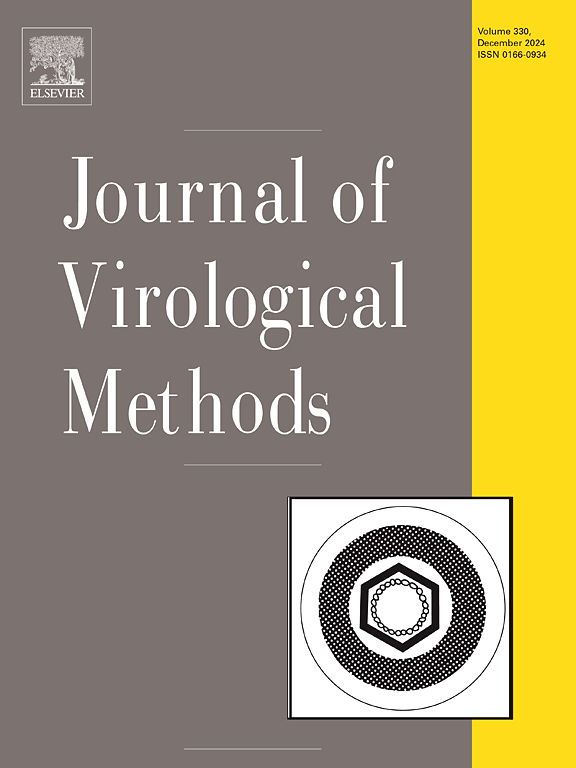Development of a urinary antigen test for BK Polyomavirus to help clinicians in patients’ follow-up
IF 2.2
4区 医学
Q3 BIOCHEMICAL RESEARCH METHODS
引用次数: 0
Abstract
BK polyomavirus (BKPyV) is responsible for hemorrhagic cystitis and nephropathy in bone marrow- and kidney transplant recipients, respectively. Monitoring BKPyV DNAuria and/or DNAemia by quantitative molecular tests is thus a common practice in the management of these patients. However, critical issues have been raised regarding these methods and the detection of viral genomes by positive PCR is not always associated with true viral replication. Identification of novel biomarkers and development of new assays are thus needed to help clinicians in patients’ follow-up and enable timely and beneficial therapeutic interventions. Here, we describe the development of a urinary lateral flow assay that specifically detects the major BKPyV VP1 protein in a few minutes. This assay was characterized using cell culture-produced virus, pseudoviruses as well as VP1 pentamers representing the four BKPyV genotypes, diluted in urine matrix. The limit of detection was around 1 µg/mL of purified VP1 pentamers. This assay also enabled to detect BKPyV VP1 in frozen urine from transplant patients with high DNAuria. Clinical validation studies are now needed to evaluate the performance of this assay in real life and its relevance for interventions.
求助全文
约1分钟内获得全文
求助全文
来源期刊
CiteScore
5.80
自引率
0.00%
发文量
209
审稿时长
41 days
期刊介绍:
The Journal of Virological Methods focuses on original, high quality research papers that describe novel and comprehensively tested methods which enhance human, animal, plant, bacterial or environmental virology and prions research and discovery.
The methods may include, but not limited to, the study of:
Viral components and morphology-
Virus isolation, propagation and development of viral vectors-
Viral pathogenesis, oncogenesis, vaccines and antivirals-
Virus replication, host-pathogen interactions and responses-
Virus transmission, prevention, control and treatment-
Viral metagenomics and virome-
Virus ecology, adaption and evolution-
Applied virology such as nanotechnology-
Viral diagnosis with novelty and comprehensive evaluation.
We seek articles, systematic reviews, meta-analyses and laboratory protocols that include comprehensive technical details with statistical confirmations that provide validations against current best practice, international standards or quality assurance programs and which advance knowledge in virology leading to improved medical, veterinary or agricultural practices and management.

 求助内容:
求助内容: 应助结果提醒方式:
应助结果提醒方式:


